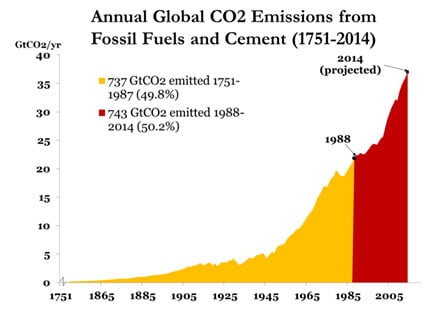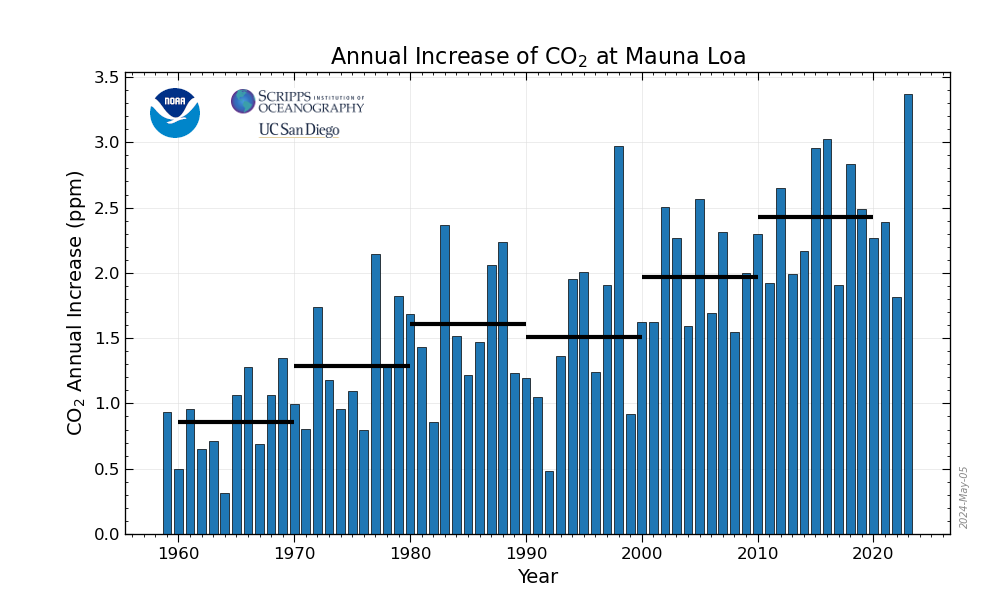Well, given that the paper is paywalled and some authors are activists, there are reasons to be skeptical.
We’ll see how it holds up to skeptical analysis.
Well, given that the paper is paywalled and some authors are activists, there are reasons to be skeptical.
We’ll see how it holds up to skeptical analysis.
” Yes – they’re called human beings.
Then let’s establish the public health policies using athletes and the military as a golden standards.
That ought to help the elderly, the newborns, the hospitalized.”
#################
the interesting thing was the tendency for more males to die than females. Living alone was also a major factor. One repsonse has been to build cooling centers for the elderly.
Right.
Heatwaves are a problem because they occur more rapidly than the human acclimatization period.
And humans can take steps to reduce the impacts which is why as large a lead time as possible is valuable.
Mosh
That is a good article but how relevant are solutions employed in first world cities with tough zoning policies and building regulations compared with the freewheeling and rapid expansion of cities with less money, few building codes and endemic bureaucracy, together with corruption likely to circumvent best intentions?
Tonyb
Is this important to an American? Not very. The Indians would nothing with the data so probably not very important to them in reality.
Let’s review my radical and bad-faith positions:
1. I believe in the “basic science” of AGW. However, I believe that its a “Wicked Problem”, and we don’t know “how much” and “how fast”.
2. I “dislike” Top/Down policy options of a Carbon Tax, Cap & Trade Schemes, or a Federal Renewable Energy Portfolio Standard.
3. All Renewable Energy decisions should be made by our Engineers (not Politicians), following engineering economics.
4. State Renewable Energy Programs are just fine, IF they are in practice viewed as “targets” and not “mandates”. It is totally appropriate for States to “nudge” their electric utilities to keep abreast/adopt new engineering methods on how to evaluate Renewables (e.g., Effective Load Carrying Capacity, ELCC).
4. I don’t believe in “Mass Conspiracy Theories”. When an Electric Utility like Georgia Power announces a solar program (they say, to meet peaking load), I believe they followed sound engineering economics in making this decision — and were not “forced” by their PSC to do so.
5. I like Tax Credits to spur innovation. But tax credits shouldn’t be viewed as “forever”. The ethanol tax credit’s time had come, maybe the wind energy credit’s time has come. As long as solar’s costs are doing what they are doing, I’d say continue them.
6. Generally, I oppose DOE Loan Guarantees. The one exception to this is Nuclear. We just need some “success stories”, and I support Vogtle and Obama’s efforts (two times) to build ~13 new nuclear power plants. I also support the Energy Policy Act which capped nuclear construction cost over-runs to Utilities and gave them a tax credit (very similar to the wind energy tax credit). I support continuing nuclear liability insurance (Price-Anderson).
7. I do not believe the EPA “over-reached” on the Mercury Rule. On Smog, when the EU (60 ppb) and Canada (63 ppb) implement Regs citing scientific health reasons, this means something to me.
8. I believe international AGW treaties are a waste of time. I believe that figuring out how to achieve win/wins through international trade agreements is much more effective and pragmatic (as Jon Huntsman was arguing).
9. Forget AGW, the U.S. needs both Nuclear and Renewables to have adequate fuel diversification in base, intermediate, and peaking load generation resources. Recognizing what’s going on with coal, we can not become overly dependent on natural gas.
(Note: Very few people will read this. I really writing to “bookmark” my comment and link to it when people say I am a and Ideologue and a “bad faith” person).
Willard—Have you done much business in India? Do you know the culture?
Steve–In India they would do virtually nothing as a result of the data in any case. If the worker didn’t show up because it was too hot, they would not have a job when it cooled
Stephen,
As long as there’s enough capacity online to allow responding to intermittency of wind and solar maintaining high reliability is primarily a question of cost. Very many articles discuss the question, whether the cost of German the Energiewende is too high. Unfortunately it’s difficult to figure out from these articles, what the case really is, because different papers present extremely different conclusions.
The conclusions are very important for the renewable energy industry and research organizations that serve the industry. Both of these are major contributors to this discussion. They do miracles, when they explain, how small the costs to the consumers really are, while they must at the same time tell, how the subsidies must be kept high.
There are equally questionable articles from the other side. These articles “prove” that the costs are really excessive and far too high, meaning too high by a big factor like 5.
While I find this second group of articles also questionable, my own views are closer to their claims. I do think that the costs have been much higher than the value of the outcome even when all direct benefits have been taken into account and on top of that also the less direct benefits from advancing technology development are included.
Unfortunately I cannot recommend any article that I know as a well balanced overview of the situation. Google search provides immediately a large number of articles from both sides, but little that can be considered impartial and balanced.
Jim D writes- ” you can say that these events will become more common and more severe with time.”
Saying it does not make it true regardless of how many times it is said. It would be accurate to say you believe that these events will become more common and more severe with time. You do not know enough about the system yet to really know in timescales important to people
Peter
Your efforts are to be applauded.
Making people wealthier gives them more choices, better health and invariably results in smaller families. India can not cope with its vast populations and more and more people cramming into hot dry cities is only going to result in an even hotter microclimate likely to prove deadly.
I don’t know what, if any, lessons can be learnt from hot rapidly growing cities in more developed countries but Indian cities can’t keep growing like they have been without serious consequences for their people and their local environment.
Tonyb
More government-academic conflict of interest and blatant lying about it by paragons of the ivory tower intellectually and morally superior climate crusaders:
PV isn’t self-replicating and self-repairing like photosynthetic organisms. You can’t create a salt-water pool and grow photo-voltaic microbes in it but you can do that with photosynthetic bacteria. Lots of sunny space that’s a complete waste of land otherwise so you make up in area the difference in efficiency.
One other point, PV doesn’t produce energy in a stored form ready for consumption by the world’s installed base of hydrocarbon-burning machinery. What’s the efficiency drop down to if the electricity is used to create chemical bond energy?
There is a detailed analysis of their SST analysis with comparisons to HadSST and COBE data sets.
Boyin Huang, Viva F. Banzon, Eric Freeman, Jay Lawrimore, Wei Liu, Thomas C. Peterson, Thomas M. Smith, Peter W. Thorne, Scott D. Woodruff, and Huai-Min Zhang, 2015: Extended Reconstructed Sea Surface Temperature Version 4 (ERSST.v4). Part I: Upgrades and Intercomparisons. J. Climate, 28, 911–930.
Wei Liu, Boyin Huang, Peter W. Thorne, Viva F. Banzon, Huai-Min Zhang, Eric Freeman, Jay Lawrimore, Thomas C. Peterson, Thomas M. Smith, and Scott D. Woodruff, 2015: Extended Reconstructed Sea Surface Temperature Version 4 (ERSST.v4): Part II. Parametric and Structural Uncertainty Estimations. J. Climate, 28, 931–951.
http://journals.ametsoc.org/doi/abs/10.1175/JCLI-D-14-00006.1
http://journals.ametsoc.org/doi/abs/10.1175/JCLI-D-14-00007.1
Paywalled for me, but you can find pdfs of both by googling.
Voic déjà la réaction de Judith Curry et de ceux qui la suivent sur son blog
Ah, adjustments. How I love adjustments! The 2014-2015 winter is record-cold one day, and the next day the science of adjustments finds that old temperature records were imprecise, and after an adjustment the last winter is no longer record cold.
To paraphrase Lenin(?), he who measures temperatures does not create a true permanent record. He who adjusts measurements does.
Yes you have lived through several nuclear accidents. You’ve also lived through uranium mining accidents that killed people, you’ve lived through nuclear bombs that killed hundreds of thousands, untold number of workers killed in mining and construction of nuclear power plant components, etc. There’s no such thing as a free lunch.
Joseph | June 4, 2015 at 1:12 pm |
PA, does it look like from this that there is any slow down in the growth CO2 in the atmosphere.
Between 1980 and 2015 Emissions doubled.

Has the rate of atmospheric increase doubled?

Not so much.
Because all that CO2 is leaking into the environment it is getting increasingly hard to add CO2 to the atmosphere. And we only have about 76 years of fossil fuel to work with.
If we don’t increase emissions the atmospheric CO2 level will stablize in about 35-44 years.
When we get to 460-480 it will take about twice current emissions to keep increasing the CO2 in the atmosphere. The 76 year supply of fossil fuel – at doubled emission – would run out in about 38 years.
So since 2 * 38 = 76, 476 is about the high end of where we can push the CO2 level. Once the CO2 level stabilizes we will have to continue to burn massive amounts of fossil fuel just to keep the CO2 level in PPM from decreasing.
http://en.wikipedia.org/wiki/1997_Indonesian_forest_fires
The spike in CO2 in 1998 was unrelated to El NIno. It seems to be caused by the Indonesian fires. The rate of rain forest burning would appear to have as much impact on the annual CO2 increase as fossil fuel emissions.
http://en.wikipedia.org/wiki/1997_Indonesian_forest_fires
1/2 of tropical rainforests, between 7.5 million and 8 million km2, have been destroyed since 1842. Tropical rainforest went from 10% of the land area to 5%. There were originally 15-18 million km2. We are down to 5.5 million km2. If you do the math on carbon emitted and sinks destroyed – the rainforests are the biggest contributor to the rise in CO2. And as we are running out of rainforest to burn, the rainforest emissions and rate of sink loss has started to slow down.
climatereason,
“purporting to show there was no concern over global cooling in the 1960’s and the first part of the 1970’s?”
That’s an exaggeration of what the paper said, which was “An enduring popular myth suggests that in the 1970s the climate science community was predicting “global cooling” and an “imminent” ice age…”
http://journals.ametsoc.org/doi/abs/10.1175/2008BAMS2370.1
The record clearly shows that analysis to be correct. Your statement is, however, also correct. There was concern about the possibility of future cooling — although this was not a “consensus” forecast.
For example, the 1970s cooling played a large role in the creation of NOAA’s climate analysis center. See links to this an other information about the 1970s global cooling scare here:
http://fabiusmaximus.com/2009/12/07/cooling-4/